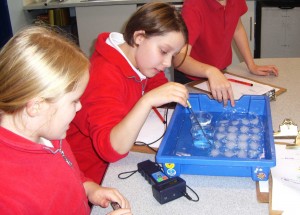Long standing TA readers will probably recall one of the more memorable articles published in TA in 1997 (No 57) on the Mpemba Effect and the Tanzanian boy Erasto Mpemba at its centre.
Now, years later The London Times has updated us on this fascinating story (Thank you John Sankey for alerting us to this – Editor). Extracts: ‘The problem, in its modern form, began life in 1968 when Physics Professor Denis Osbourne visited a Tanzania school near Lake Victoria. After his address, a student named Erasto Mpemba asked how can a cup of boiling water at 100C freeze faster than a cup of water at 35C? The next year the two published a joint paper on the phenomenon since known as the ‘Mpemba Effect’.
“Amid the things we know and the things we don’t yet know, there is the unknowable” – The Times, Leading Article 27/6/12
A whole plethora of articles have been published in scientific journals. Recent examples:
Physics World casts doubt on the story: “Even if the Mpemba effect is real — if hot water can sometimes freeze more quickly than cold — it is not clear whether the explanation would be trivial or illuminating.” Investigations of the phenomenon need to control a large number of initial parameters (including type and initial temperature of the water, dissolved gas and other impurities; the size, shape and material of the container;, and the temperature of the refrigerator) and need to settle on a particular method of establishing the time of freezing, all of which might affect the presence or absence of the Mpemba effect. The required vast multidimensional array of experiments might explain why the effect is not yet understood.
New Scientist recommends starting the experiment with containers at 35°C (95°F) and 5°C (41°F) to maximize the effect.
‘It’s True: Hot Water Really Can Freeze Faster than Cold Water … Mpemba has joined a distinguished group of people who had also noticed the effect: Aristotle, Francis Bacon and René Descartes had all made the same claim’ – Laura Sanders in Science News. This article confirms that James Brownridge of State University of New York at Binghamton has managed to reproduce the effect consistently, but only when comparing cold distilled water against hot tap water.
Now, the Royal Society of Chemistry in London is looking for ‘outside the box, inventive submissions to help explain one of the great chemistry conundrums’. Submissions to: www.hermes2012.org/ice. Reward £1,000 for anyone who can explain why hot water freezes faster than cold.
Question – in 1997 Mr Erasto Mpembe was working as a Game Office for the Ministry of Natural Resources and Tourism – does anyone know where he is now? We would love to hear from him or about him – Editor.


Pingback: Tanzanian Affairs » MPEMBA EFFECT-20,000 SOLUTIONS!